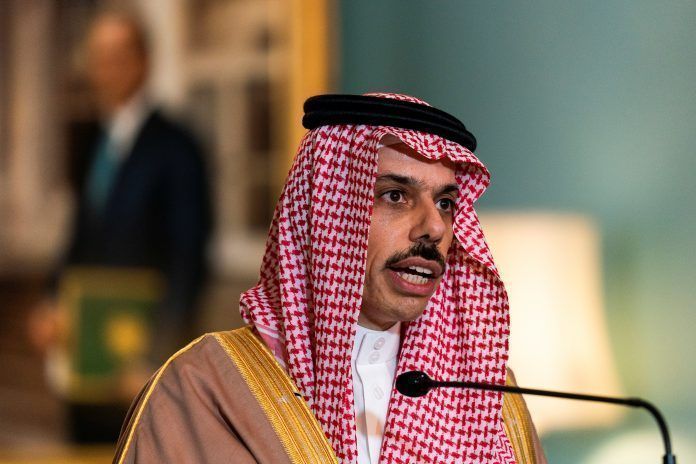
WASHINGTON, Aug 3 (Reuters) – Saudi Arabia’s foreign minister said on Tuesday he sees an emboldened Iran acting in a negative manner around the Middle East, endangering shipping, arming Yemen’s Houthis and contributing to political deadlock in Lebanon.
“All around the region, Iran continues to be emboldened,” Saudi Foreign Minister Prince Faisal bin Farhan Al Saud told a U.S. think tank in an online appearance, alluding to reports that Iranian-backed forces were believed to have seized an oil tanker off the coast of the United Arab Emirates.
“Iran is extremely active in the region with its negative activity, whether it’s continuing to supply the Houthis with weapons or endangering shipping in the [Persian] Arabian Gulf, which we have got reports coming in today that may indicate additional activity there,” he said. Iran, he added, had abetted the political impasse that has undermined Lebanon’s economy.
Addressing a virtual gathering of the Aspen Security Forum, he also repeated Riyadh’s stance that it could live with a “longer and stronger” version of Iran‘s 2015 nuclear deal with world powers if it ensured Tehran never obtained nuclear arms know-how.
“We certainly support a deal with Iran as long as that deal ensures that Iran will not now or ever gain access to nuclear weapons technology,” he said, saying Riyadh would welcome an Iran that contributed to regional stability and prosperity.
“But that would require (Iran) engaging in the region as a state actor in a normal way…, not supporting militias, not sending weapons to armed groups, and most importantly, giving up a nuclear program which might be used…to develop nuclear weapons.”
U.S. Sees ‘Collective Response’ to Ship Attack Blamed on Iran
Britain Tells UN ‘Highly Likely’ Iran behind Deadly Tanker Attack
Bennett Says Israel Able to “Act Alone” against Iran over Ship Attack
(Reporting by Arshad Mohammed and Daphne Psaledakis Editing by Mark Heinrich)

